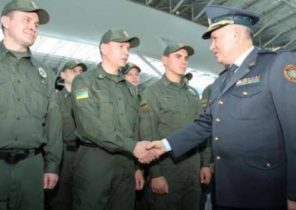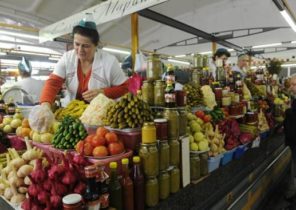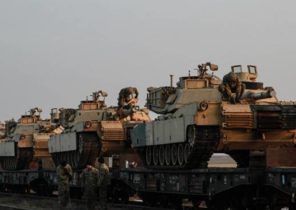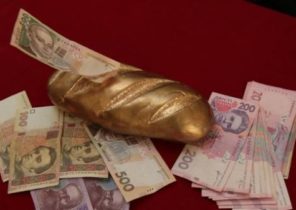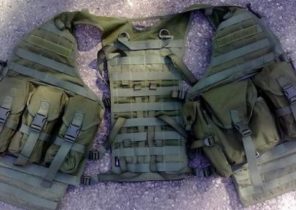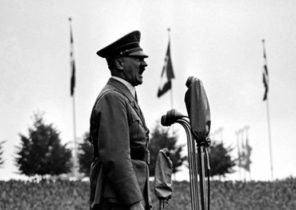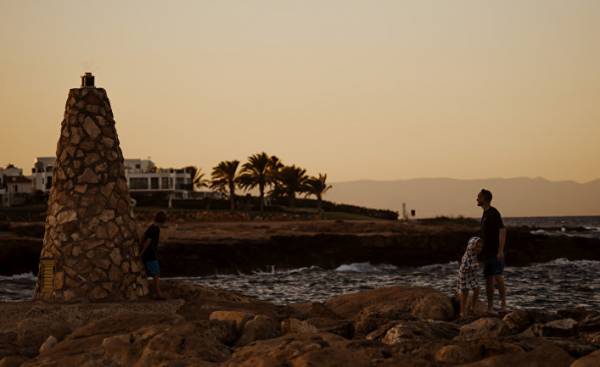
Just a couple of weeks ago in the Swiss town of Crans-Montana international diplomacy has suffered a recent series of setbacks that have continued for over 50 years. Antonio Guterres(Antonio Guterres), the UN Secretary General, announced the failure of the regular, recurring, and inevitable — of negotiations on the unification of the island of Cyprus. According to experts, until today forty years was not the best opportunity for enterprises, the third largest island in the Mediterranean sea, and this failure is an indication of what a new similar chance might never present itself.
If you ask an Englishman or a Frenchman 20-30 years, is there still in Europe, the capital is divided into two parts, as it was in Berlin, with checkpoint, barbed wire and two peoples who mistrust each other through the wire fence, he certainly will answer that nothing like that exists.
In Paris it’s all right, in Berlin we have already named, and perhaps all this is not a relic of the past? The questions we ask ourselves, presenting documents (passport first, then ID) to pass from one side of Nicosia to the other part of this small capital of the small island of Cyprus whose inhabitants, divided for 40 years, and it still remains a huge open wound on the body of the European project. Nicosia, a city with a legacy of the knights Templar, the French (crusaders went out Hiking in the Holy Land), Venetians, Ottomans and the British (the island was a British colony from 1878 to 1959), forty years is divided into three parts: the South, the Republic of Cyprus where the Greek Cypriots — this state is part of the EU and recognized by the international community; the North, the Turkish Republic of Northern Cyprus (TRNC) — at the international level it is considered to be the self-proclaimed state recognized only by Turkey; and in the centre of the island is the “blue berets” of the UN performing in Cyprus the longest current mission. The so-called green line dividing Nicosia (the Turkish Cypriots call it Lefkosia), dividing in half is not only the capital: since 1974, the entire island is divided between Turkish Cypriots and Greek Cypriots, and any attempt to unite these two people are doomed to failure.
As always happens in the hidden places of conflict where historical memory becomes the subject of an active manipulation, in Cyprus you have to be careful with words and definitions. For example, ethnic cleansing.
Both people say they were victims of the purges, both talking about thousands of victims, and here and there there are the martyrs, the heartbreaking stories of families destroyed by ethnic violence. Or the Turkish invasion: when, in 1974, Turkey sent its soldiers to the island immediately after the coup, led by Greek colonels, the Greek Cypriots thought it was a cruel invasion, and the Turkish Cypriots peaceful intervention that helped to avoid mass extermination of the people.
Since 1974, this situation resulted in absolutely incredible for our time the stalemate: Turkish soldiers never left the island. The defence contingent of Ankara has a population of 40 thousand people, and it is an impressive figure for the island, where there is one and a half million inhabitants.
Legitimacy — the last of the explosive words in our list. On the island of Cyprus, in fact, flying five flags. Three in the South: this is the flag of the internationally recognized Republic of Cyprus, the Greek flag and the flag of the European Union. And two in the North: the flags of the TRNC and Turkey. Too many characters for one single island. Turkish Cypriots cannot travel abroad except through Turkey; they may not send postcards other than through Turkey; can trade in any item, without having to pass through Turkey; their diplomas are not recognized abroad (except in Turkey); their sports teams are unable to participate in any championship (even in Turkish). The Turkish Cypriots live, if they were in Iran of the ayatollahs or Saddam’s Iraq. What happens on one of the Islands, which is considered European, is one of the biggest failures of the project of a United Europe.
The international community has an infinite number of times tried to reunite the island, but remain intractable mainly two questions. The first concerns the distribution of power: the Turkish Cypriots want a Federal government on a parity basis, as it was in the era after independence, but as we said one of the residents of the South Nicosia (ie the Greek part): “the Turks comprise only 18% of the population and want to share everything equally”. The second unsolvable question — is Turkey. The Greek Cypriots want the army “invader” is gone from the island; Turkish Cypriots are asked to maintain at least a contingent of “peacekeeping”, and under any circumstances, want Ankara has retained the right of intervention in case of violence against them. Foglio says Mustafa Akinci, the TRNC President, a man of moderate views, who has spent the last talks in Switzerland: “the Turkish Cypriots feared the Greek Cypriots; the Greek Cypriots fear Turkey.”
Recent efforts of the United Nations in Switzerland came upon the hardness of both sides ‘ positions, despite the willingness Akinci and his Greek counterpart Nikos Anastasiadis negotiations. This round of negotiations were pinned such high hopes that the international community now has literally no idea how to move on, and even on the island itself, no one knows what will happen next. The center-right government of Turkish Cypriots, elected independently of the President, does not share his line of political openness and occupies a position similar to Ankara. This government is convinced of only one thing: necessary to tie in with the UN.
In an interview with our newspaper, the Minister of foreign Affairs of the TRNC Tahsin Ertuğruloğlu, without losing balance, says we have in hand is any possibility, even some form of Alliance with Turkey, “our homeland”, where “Ankara could do defense and foreign policy, and we have conducted independent internal policy.” According to Greek Cypriots, and probably many citizens of continental Europe, the possibility that Northern Cyprus will be Turkish province or Republic, also with Turkey, a cause for concern.
“Continue to negotiate in accordance with the parameters set by the UN, as we did in the last 50 years is a waste of time, says Minister Ertuğruloğlu. — While the Greek Cypriots enjoy international recognition and protection, and deny us sovereignty and identity, no matter how many years we will have negotiations, but we will never arrive at a lasting agreement. If suddenly will be organized in other negotiations — but this is not the fact that they will — we will act only on the basis of parity between States, despite the fact that until now the UN only recognized us as a community of Turkish Cypriots”.
According to the Minister, “the failure of recent negotiations shows that the Greek Cypriots are not interested in conclusion of the agreement. If the Greek Cypriots want to build with us a common future as equals, we will be able to continue the negotiations, otherwise we’ll be on my way.” Even the great hopes placed by both parties on the European Union, down: “Personally, I never counted on EU, and my fellow citizens also say that we are completely indifferent to him”. “Even you Italians continue to talk to the Turkish Cypriots as an ethnic minority in the Republic of Cyprus, and not as one of the representatives of the legitimate government of the island”.
Ownership rights have become the most pressing issue on the international agenda, when the old friction was added to the theme of hydrocarbons. A few days ago the company Total, which was soon followed by Eni, has begun exploration in the sea off the southern coast of the island (that is on the Greek side of Cyprus) with the prospect of beginning the exploitation of probable oil and natural gas. This news enraged the Turkish Cypriots who are fighting for revenues from the extraction of natural resources of the island, albeit organised on the Greek side of the island. Turkey sent two warships and one submarine to monitor activity in the sea, and the Minister Ertuğruloğlu warned Eni: getting to the intelligence, “you are making a mistake. The Greek Cypriots can begin exploration without our consent. We will do everything necessary and not allow the Greek Cypriots to do what they want. For the companies that have signed agreements with them, is a dead end, a waste of time and money,” he says, without specifying what measures Lefkosia and Turkey are willing to accept, and not excluding military action.
In addition to the proud statements from the government, however, the Turkish Cypriots crave for enterprises. Current last failed attempt ended the idea, put forward in 2004, Kofi Annan, who was then the post of UN Secretary General. The project was approved by Turkish Cypriots but the Greek Cypriots from the southern part of the island rejected it in a referendum, mainly for fear of the presence of the Turkish army.
July 20 this year, the anniversary of the landing of the Turks in 1974, Northern Cyprus was celebrated in Lefkosia of the national liberation day, having a small military parade in the presence of Prime Minister of Turkey, Binali Yildirim, who was honored here almost more than the local President. Not more than a kilometer away from the venue of the parade group progrecista activists from the southern part of the island told the tourists that July 20 — a day of national mourning, because that’s when Cyprus lost its unity. The island is inhabited by two people who are victims rather lengthy history, which began even before the Turkish military intervention, to episodes of ethnic violence and to the failure of the plans of the United Nations. Problems in the history of Cyprus begins with the confrontation between Constantinople and the Ottoman Empire, and the overlapping complications of geopolitics of the 20th century: an island inhabited mostly by Greeks may not live to lead an easy and relaxed existence in 70 kilometers from the coast of Turkey.
At the same time, being divided, these two very similar people increasingly move away from each other. In southern Cyprus the Orthodox Christian majority has become the most active anti-Turkish force. In North Cyprus, where there are almost no women in headscarves and almost hear the voices of the muezzins, not far from Lefkosia built a giant mosque, and when it is a huge religious school. All this is funded by Ankara.

